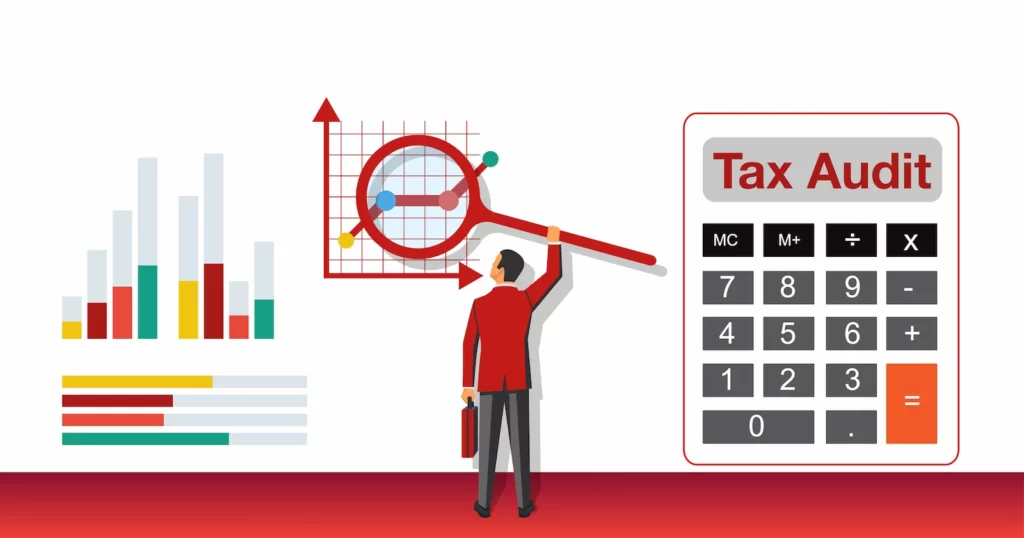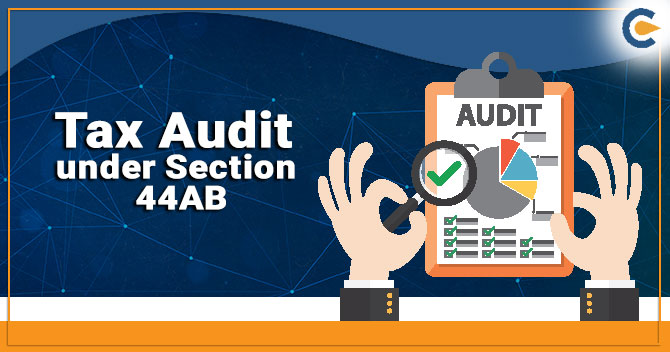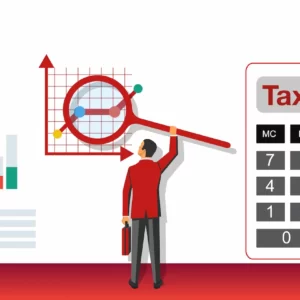Understanding Section 44AB of the Income Tax Act, 1961 and Tax Audit
Section 44AB of the Income Tax Act, 1961, outlines the provisions related to tax audits for businesses and professionals. This section lays down rules for maintaining accurate financial records and books of accounts, helping ensure proper reporting of income, deductions, and taxes. This measure contributes to reducing fraudulent practices and maintaining transparency in financial dealings. Tax audits under this section are conducted by practicing chartered accountants, and the resulting audit report is submitted to the income tax department.
Income Tax Audit under Section 44AB:
An Income Tax Audit, as mandated by section 44AB, involves a thorough examination of the financial records of businesses or professionals. It aims to review transactions related to income, expenses, deductions, and taxation. This process streamlines the filing of income tax returns and facilitates accurate taxation.
Entities Liable for Tax Audit under Section 44AB:
Tax audits under section 44AB are required for the following entities, except those eligible for presumptive taxation under sections 44AD, 44ADA, 44AE, or if turnover falls below specified thresholds:
- Businesses with cash receipts not exceeding 5% of total receipts and cash payments not exceeding 5% of total payments (10 crores from 1/4/21).
- Professionals with gross receipts exceeding Rs. 50 lakh in a year.
- Assessees opting for sections 44ADA and 44AD but reporting income lower than presumptive taxation profits.
- Assessees opting for sections 44AE, 44BB, 44BBB but reporting income lower than prescribed profits.
Objectives of Income Tax Audit:

The key objectives of conducting tax audits include:
- Ensuring proper maintenance of fraud-free financial records, certified by auditors.
- Identifying discrepancies through thorough examination of books of accounts.
- Reporting information such as tax depreciation, compliance with tax laws, and more.
- Simplifying tax calculation and deductions through accurate auditing.
- Verifying the accuracy of income, tax, and deduction information in taxpayers’ returns.
Components of Audit Report:
An audit report, as per Rule 6G of the Income Tax Rules, summarizes the audit process’s findings. Chartered accountants prepare and electronically file this report. The report is submitted in either Form 3CA or Form 3CB, based on whether the audit is mandatory or optional under other laws.
Deadline for Furnishing Audit Report:
Chartered accountants use their login credentials to submit audit reports. Taxpayers need to verify their auditor’s details in their login portal and accept the uploaded report. The due date is generally September 30th of the assessment year (for international transactions, it’s October 31st). There have been specific extensions for some assessment years.
Penalties for Non-compliance:
Failure to comply with tax audit requirements results in penalties, which are either 0.5% of sales/turnover or Rs. 1,50,000, whichever is lower. However, if reasonable causes are established, no penalty is levied.
Audit under Other Laws:
If an entity is subject to audit under other laws, such as the statutory audit of companies under company law, an additional audit for taxation purposes is not required. Only the audit report according to income tax law needs to be filed.

Conclusion:
Adhering to the provisions of section 44AB is essential for taxpayers to maintain accurate financial records, facilitate proper tax reporting, and ensure compliance with tax laws. Conducting audits helps prevent fraudulent practices and promotes transparency in financial dealings.
